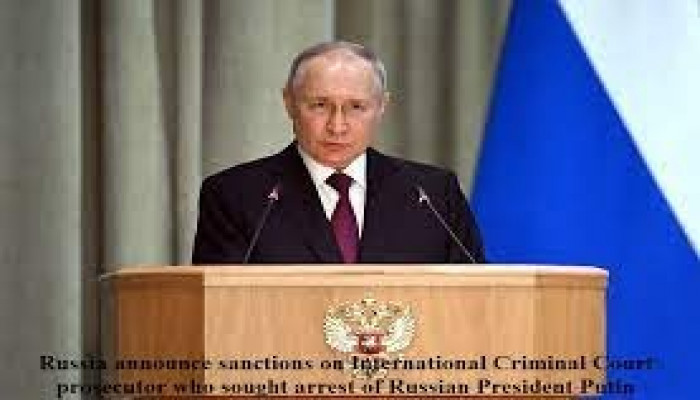Russia imposes sanctions on ICC prosecutor and UK ministers
- In Reports
- 12:26 PM, Aug 19, 2023
- Myind Staff
In a significant move, Russia has declared the imposition of sanctions on the prosecutor of the International Criminal Court (ICC), who had recently pursued the arrest of Russian President Vladimir Putin. Additionally, the country has also taken the step of imposing sanctions on British ministers who have vociferously voiced their opposition to the Russian military offensive in Ukraine.
This announcement comes amid escalating tensions and a shifting geopolitical landscape, raising further questions about international relations and diplomatic maneuvering.
Amidst escalating geopolitical tensions, the Russian Foreign Ministry has denounced the United Kingdom's unwavering military support for Kyiv and the aggressive implementation of what they term a "hostile anti-Russian policy." This move by Russia follows nearly a year and a half of conflict in Ukraine, with the tensions now manifesting in diplomatic and economic measures.
The International Criminal Court's (ICC) Karim Khan, a British national, issued an arrest warrant for Russian President Vladimir Putin in March, accusing him of unlawfully deporting Ukrainian children. Notably, Russia is not a member of the ICC and has declared the warrant against Putin as "void." In a response demonstrating defiance, the ICC affirmed its stance in May, remaining undeterred despite Russia's inclusion of Khan in a wanted list.
The sanctions list introduced by Russia includes 54 individuals, predominantly British citizens. Among those targeted are sports minister Lucy Fraser, who has been actively advocating for the international sporting isolation of Russia, and Annabel Goldie, the British Deputy Defence Minister responsible for supplying weapons to Ukraine.
Additionally, journalists from prominent outlets such as the BBC, the Guardian, and the Daily Telegraph have also faced sanctions. Moscow alleges their involvement in disseminating false information about Russia and supporting propaganda activities by Kyiv.
Russia's military incursion into Ukraine began in February 2022, initially achieving some success but subsequently facing resistance from the Ukrainian forces, resulting in the retreat of Russian troops from various regions. Western countries, led by the United States, have been providing substantial financial and military aid to Ukraine, with the United Kingdom emerging as one of the main supporters in both aspects.
Meanwhile, Belarus, an ally of Russia, has issued a stark warning of a potential nuclear strike in response to any perceived aggression by NATO allies situated at its border. Belarusian President Alexander Lukashenko specifically directed his remarks toward Poland, Lithuania, and Latvia, all of which are NATO member countries.
The concerns stem from allegations that Belarus provided shelter to the Wagner troops, a move that has drawn international scrutiny and concern. This escalation adds a new layer of complexity to an already tense regional landscape.
Image source: AP







Comments